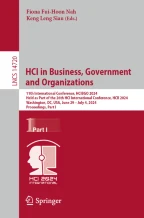
Due to the Covid-19 pandemic, people are increasingly engaging in non-face-to-face credit card transactions in their daily lives. However, this trend has also provided opportunities for malicious actors to obtain customer credit card information through various illicit means, leading to a continuous rise in credit card fraud. Traditional fraud detection methods, relying on extensive rules and manual judgment, struggle to effectively prevent the evolving techniques of fraud and often result in significant false positives, requiring substantial time for transaction verification. In recent years, the development of big data and machine learning algorithms has offered an effective solution to this challenge. This study employs three common machine learning algorithms—Logistic Regression, Random Forest, and Extreme Gradient Boosting—for predicting credit card fraud. Utilizing transaction data from Bank F time period from January 2021 to May 2023, including fields such as transaction ID, credit limit, occupation, transaction date, transaction time, transaction amount, etc., the study addresses the issue of imbalanced data in credit card fraud through sampling methods. Different ratios of normal to fraud samples, coupled with varying sampling frequencies, are employed along with ensemble learning techniques to enhance the accuracy and stability of the predictive model. Subsequently, various commonly used machine learning evaluation metrics are applied to identify the best model. The empirical results indicate that the Extreme Gradient Boosting model performs best in detecting credit card fraud. In scenarios with different sampling ratios of normal to fraud samples, the study identifies key features such as changes in the cardholder's transaction behavior concerning transaction region, frequency, and amount. The results of this study provide the bank with references on how to develop more effective strategies for fraud prevention.
This is a preview of subscription content, log in via an institution to check access.